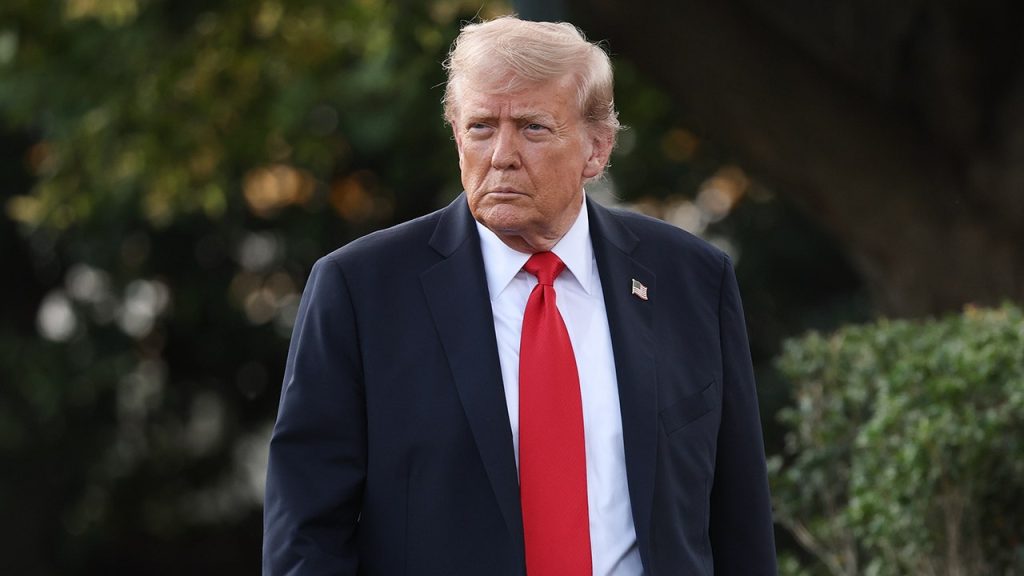Trump Announces Potential Breakthrough in Israel-Hamas War
President Donald Trump expressed optimism Friday about ending the Israel-Hamas conflict, telling reporters while leaving the White House, “I think we have a deal on Gaza.” With visible confidence, Trump suggested the agreement would both secure the return of hostages and bring the war to a conclusion. “It’s going to be peace,” he stated, offering a glimpse of hope for a region that has endured months of devastating conflict. Though light on specifics, Trump’s announcement signals what could be a significant diplomatic breakthrough in one of the world’s most intractable conflicts.
The apparent breakthrough follows Trump’s introduction of a comprehensive 21-point peace initiative presented during meetings with Arab leaders at the United Nations General Assembly earlier this week. Special envoy for the Middle East Steve Witkoff played a key role in these discussions, outlining a plan that addresses several critical issues: returning all hostages (both living and deceased), ending attacks on Qatar, and establishing new dialogue between Israelis and Palestinians aimed at peaceful coexistence. A White House official speaking on background emphasized that foreign partners expressed “broad agreement” that President Trump was uniquely positioned to end the fighting, highlighting the administration’s confidence in its diplomatic approach.
Witkoff elaborated on the peace initiative while speaking at the Concordia Annual Summit in New York, describing a “very productive” meeting between Trump and officials from several Middle Eastern and Muslim-majority nations, including Saudi Arabia, Qatar, Egypt, and others. “We presented what we call the Trump 21-point plan for peace in the Middle East,” Witkoff explained, adding that the proposal aims to address both “Israeli concerns as well as concerns of neighbors in the region.” This balanced approach appears designed to offer concessions that could satisfy both sides of the conflict while providing a framework for longer-term stability—a delicate balancing act that has eluded previous administrations.
In a surprising development that potentially strengthens the peace proposal’s prospects, Palestinian Authority President Mahmoud Abbas signaled support for Trump’s initiative during his recorded address to the UN General Assembly. Despite being barred from entering the United States to deliver his speech in person, Abbas declared, “We are ready to work with U.S. President Donald Trump and with the Kingdom of Saudi Arabia and France, the United Nations and all partners to implement the peace plan.” This rare alignment between American, Israeli, and Palestinian positions could represent a critical diplomatic opening, though substantial challenges remain in translating expressions of goodwill into concrete actions on the ground.
Abbas further specified that the Palestinian Authority stands ready to assume responsibility for security and governance in Gaza, while insisting that Hamas must disarm—a position that aligns with longstanding Israeli demands but may face resistance from Hamas leadership. The willingness of the Palestinian Authority to take on this role represents a potential path forward for post-conflict governance in Gaza, addressing one of the most complex aspects of any potential peace agreement. Whether Hamas would accept such terms remains a critical outstanding question, as does the implementation timeline and verification mechanisms for any disarmament process.
As the situation continues to develop, significant questions remain about the specific contents of the 21-point plan, the timeline for implementation, and whether all parties—particularly Hamas—will ultimately accept its terms. The administration has not yet released the full details of the proposal publicly, describing the current stage as ongoing engagement with Israeli officials following the positive reception from regional partners. If successful, this diplomatic initiative could represent a major foreign policy achievement for the Trump administration, potentially ending a conflict that has claimed thousands of lives and created a humanitarian crisis. However, the history of Middle East peace efforts suggests caution, as previous seemingly promising agreements have faltered during implementation phases when details proved contentious.


